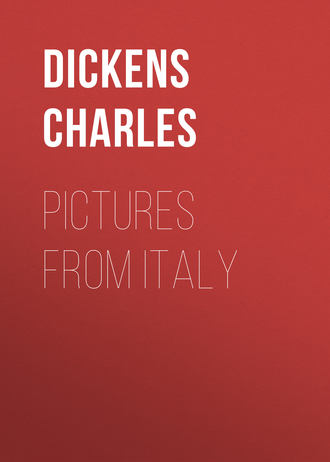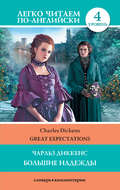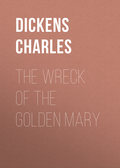
Чарльз Диккенс
Pictures from Italy
The great majority of the streets are as narrow as any thoroughfare can well be, where people (even Italian people) are supposed to live and walk about; being mere lanes, with here and there a kind of well, or breathing-place. The houses are immensely high, painted in all sorts of colours, and are in every stage and state of damage, dirt, and lack of repair. They are commonly let off in floors, or flats, like the houses in the old town of Edinburgh, or many houses in Paris. There are few street doors; the entrance halls are, for the most part, looked upon as public property; and any moderately enterprising scavenger might make a fine fortune by now and then clearing them out. As it is impossible for coaches to penetrate into these streets, there are sedan chairs, gilded and otherwise, for hire in divers places. A great many private chairs are also kept among the nobility and gentry; and at night these are trotted to and fro in all directions, preceded by bearers of great lanthorns, made of linen stretched upon a frame. The sedans and lanthorns are the legitimate successors of the long strings of patient and much-abused mules, that go jingling their little bells through these confined streets all day long. They follow them, as regularly as the stars the sun.
When shall I forget the Streets of Palaces: the Strada Nuova and the Strada Balbi! or how the former looked one summer day, when I first saw it underneath the brightest and most intensely blue of summer skies: which its narrow perspective of immense mansions, reduced to a tapering and most precious strip of brightness, looking down upon the heavy shade below! A brightness not too common, even in July and August, to be well esteemed: for, if the Truth must out, there were not eight blue skies in as many midsummer weeks, saving, sometimes, early in the morning; when, looking out to sea, the water and the firmament were one world of deep and brilliant blue. At other times, there were clouds and haze enough to make an Englishman grumble in his own climate.
The endless details of these rich Palaces: the walls of some of them, within, alive with masterpieces by Vandyke! The great, heavy, stone balconies, one above another, and tier over tier: with here and there, one larger than the rest, towering high up – a huge marble platform; the doorless vestibules, massively barred lower windows, immense public staircases, thick marble pillars, strong dungeon-like arches, and dreary, dreaming, echoing vaulted chambers: among which the eye wanders again, and again, and again, as every palace is succeeded by another – the terrace gardens between house and house, with green arches of the vine, and groves of orange-trees, and blushing oleander in full bloom, twenty, thirty, forty feet above the street – the painted halls, mouldering, and blotting, and rotting in the damp corners, and still shining out in beautiful colours and voluptuous designs, where the walls are dry – the faded figures on the outsides of the houses, holding wreaths, and crowns, and flying upward, and downward, and standing in niches, and here and there looking fainter and more feeble than elsewhere, by contrast with some fresh little Cupids, who on a more recently decorated portion of the front, are stretching out what seems to be the semblance of a blanket, but is, indeed, a sun-dial – the steep, steep, up-hill streets of small palaces (but very large palaces for all that), with marble terraces looking down into close by-ways – the magnificent and innumerable Churches; and the rapid passage from a street of stately edifices, into a maze of the vilest squalor, steaming with unwholesome stenches, and swarming with half-naked children and whole worlds of dirty people – make up, altogether, such a scene of wonder: so lively, and yet so dead: so noisy, and yet so quiet: so obtrusive, and yet so shy and lowering: so wide awake, and yet so fast asleep: that it is a sort of intoxication to a stranger to walk on, and on, and on, and look about him. A bewildering phantasmagoria, with all the inconsistency of a dream, and all the pain and all the pleasure of an extravagant reality!
The different uses to which some of these Palaces are applied, all at once, is characteristic. For instance, the English Banker (my excellent and hospitable friend) has his office in a good-sized Palazzo in the Strada Nuova. In the hall (every inch of which is elaborately painted, but which is as dirty as a police-station in London), a hook-nosed Saracen’s Head with an immense quantity of black hair (there is a man attached to it) sells walking-sticks. On the other side of the doorway, a lady with a showy handkerchief for head-dress (wife to the Saracen’s Head, I believe) sells articles of her own knitting; and sometimes flowers. A little further in, two or three blind men occasionally beg. Sometimes, they are visited by a man without legs, on a little go-cart, but who has such a fresh-coloured, lively face, and such a respectable, well-conditioned body, that he looks as if he had sunk into the ground up to his middle, or had come, but partially, up a flight of cellar-steps to speak to somebody. A little further in, a few men, perhaps, lie asleep in the middle of the day; or they may be chairmen waiting for their absent freight. If so, they have brought their chairs in with them, and there they stand also. On the left of the hall is a little room: a hatter’s shop. On the first floor, is the English bank. On the first floor also, is a whole house, and a good large residence too. Heaven knows what there may be above that; but when you are there, you have only just begun to go up-stairs. And yet, coming down-stairs again, thinking of this; and passing out at a great crazy door in the back of the hall, instead of turning the other way, to get into the street again; it bangs behind you, making the dismallest and most lonesome echoes, and you stand in a yard (the yard of the same house) which seems to have been unvisited by human foot, for a hundred years. Not a sound disturbs its repose. Not a head, thrust out of any of the grim, dark, jealous windows, within sight, makes the weeds in the cracked pavement faint of heart, by suggesting the possibility of there being hands to grub them up. Opposite to you, is a giant figure carved in stone, reclining, with an urn, upon a lofty piece of artificial rockwork; and out of the urn, dangles the fag end of a leaden pipe, which, once upon a time, poured a small torrent down the rocks. But the eye-sockets of the giant are not drier than this channel is now. He seems to have given his urn, which is nearly upside down, a final tilt; and after crying, like a sepulchral child, ‘All gone!’ to have lapsed into a stony silence.
In the streets of shops, the houses are much smaller, but of great size notwithstanding, and extremely high. They are very dirty: quite undrained, if my nose be at all reliable: and emit a peculiar fragrance, like the smell of very bad cheese, kept in very hot blankets. Notwithstanding the height of the houses, there would seem to have been a lack of room in the City, for new houses are thrust in everywhere. Wherever it has been possible to cram a tumble-down tenement into a crack or corner, in it has gone. If there be a nook or angle in the wall of a church, or a crevice in any other dead wall, of any sort, there you are sure to find some kind of habitation: looking as if it had grown there, like a fungus. Against the Government House, against the old Senate House, round about any large building, little shops stick so close, like parasite vermin to the great carcase. And for all this, look where you may: up steps, down steps, anywhere, everywhere: there are irregular houses, receding, starting forward, tumbling down, leaning against their neighbours, crippling themselves or their friends by some means or other, until one, more irregular than the rest, chokes up the way, and you can’t see any further.
One of the rottenest-looking parts of the town, I think, is down by the landing-wharf: though it may be, that its being associated with a great deal of rottenness on the evening of our arrival, has stamped it deeper in my mind. Here, again, the houses are very high, and are of an infinite variety of deformed shapes, and have (as most of the houses have) something hanging out of a great many windows, and wafting its frowsy fragrance on the breeze. Sometimes, it is a curtain; sometimes, it is a carpet; sometimes, it is a bed; sometimes, a whole line-full of clothes; but there is almost always something. Before the basement of these houses, is an arcade over the pavement: very massive, dark, and low, like an old crypt. The stone, or plaster, of which it is made, has turned quite black; and against every one of these black piles, all sorts of filth and garbage seem to accumulate spontaneously. Beneath some of the arches, the sellers of macaroni and polenta establish their stalls, which are by no means inviting. The offal of a fish-market, near at hand – that is to say, of a back lane, where people sit upon the ground and on various old bulk-heads and sheds, and sell fish when they have any to dispose of – and of a vegetable market, constructed on the same principle – are contributed to the decoration of this quarter; and as all the mercantile business is transacted here, and it is crowded all day, it has a very decided flavour about it. The Porto Franco, or Free Port (where goods brought in from foreign countries pay no duty until they are sold and taken out, as in a bonded warehouse in England), is down here also; and two portentous officials, in cocked hats, stand at the gate to search you if they choose, and to keep out Monks and Ladies. For, Sanctity as well as Beauty has been known to yield to the temptation of smuggling, and in the same way: that is to say, by concealing the smuggled property beneath the loose folds of its dress. So Sanctity and Beauty may, by no means, enter.
The streets of Genoa would be all the better for the importation of a few Priests of prepossessing appearance. Every fourth or fifth man in the streets is a Priest or a Monk; and there is pretty sure to be at least one itinerant ecclesiastic inside or outside every hackney carriage on the neighbouring roads. I have no knowledge, elsewhere, of more repulsive countenances than are to be found among these gentry. If Nature’s handwriting be at all legible, greater varieties of sloth, deceit, and intellectual torpor, could hardly be observed among any class of men in the world.
Mr. Pepys once heard a clergyman assert in his sermon, in illustration of his respect for the Priestly office, that if he could meet a Priest and angel together, he would salute the Priest first. I am rather of the opinion of Petrarch, who, when his pupil Boccaccio wrote to him in great tribulation, that he had been visited and admonished for his writings by a Carthusian Friar who claimed to be a messenger immediately commissioned by Heaven for that purpose, replied, that for his own part, he would take the liberty of testing the reality of the commission by personal observation of the Messenger’s face, eyes, forehead, behaviour, and discourse. I cannot but believe myself, from similar observation, that many unaccredited celestial messengers may be seen skulking through the streets of Genoa, or droning away their lives in other Italian towns.
Perhaps the Cappuccíni, though not a learned body, are, as an order, the best friends of the people. They seem to mingle with them more immediately, as their counsellors and comforters; and to go among them more, when they are sick; and to pry less than some other orders, into the secrets of families, for the purpose of establishing a baleful ascendency over their weaker members; and to be influenced by a less fierce desire to make converts, and once made, to let them go to ruin, soul and body. They may be seen, in their coarse dress, in all parts of the town at all times, and begging in the markets early in the morning. The Jesuits too, muster strong in the streets, and go slinking noiselessly about, in pairs, like black cats.
In some of the narrow passages, distinct trades congregate. There is a street of jewellers, and there is a row of booksellers; but even down in places where nobody ever can, or ever could, penetrate in a carriage, there are mighty old palaces shut in among the gloomiest and closest walls, and almost shut out from the sun. Very few of the tradesmen have any idea of setting forth their goods, or disposing them for show. If you, a stranger, want to buy anything, you usually look round the shop till you see it; then clutch it, if it be within reach, and inquire how much. Everything is sold at the most unlikely place. If you want coffee, you go to a sweetmeat shop; and if you want meat, you will probably find it behind an old checked curtain, down half-a-dozen steps, in some sequestered nook as hard to find as if the commodity were poison, and Genoa’s law were death to any that uttered it.
Most of the apothecaries’ shops are great lounging-places. Here, grave men with sticks, sit down in the shade for hours together, passing a meagre Genoa paper from hand to hand, and talking, drowsily and sparingly, about the News. Two or three of these are poor physicians, ready to proclaim themselves on an emergency, and tear off with any messenger who may arrive. You may know them by the way in which they stretch their necks to listen, when you enter; and by the sigh with which they fall back again into their dull corners, on finding that you only want medicine. Few people lounge in the barbers’ shops; though they are very numerous, as hardly any man shaves himself. But the apothecary’s has its group of loungers, who sit back among the bottles, with their hands folded over the tops of their sticks. So still and quiet, that either you don’t see them in the darkened shop, or mistake them – as I did one ghostly man in bottle-green, one day, with a hat like a stopper – for Horse Medicine.
On a summer evening the Genoese are as fond of putting themselves, as their ancestors were of putting houses, in every available inch of space in and about the town. In all the lanes and alleys, and up every little ascent, and on every dwarf wall, and on every flight of steps, they cluster like bees. Meanwhile (and especially on festa-days) the bells of the churches ring incessantly; not in peals, or any known form of sound, but in a horrible, irregular, jerking, dingle, dingle, dingle: with a sudden stop at every fifteenth dingle or so, which is maddening. This performance is usually achieved by a boy up in the steeple, who takes hold of the clapper, or a little rope attached to it, and tries to dingle louder than every other boy similarly employed. The noise is supposed to be particularly obnoxious to Evil Spirits; but looking up into the steeples, and seeing (and hearing) these young Christians thus engaged, one might very naturally mistake them for the Enemy.
Festa-days, early in the autumn, are very numerous. All the shops were shut up, twice within a week, for these holidays; and one night, all the houses in the neighbourhood of a particular church were illuminated, while the church itself was lighted, outside, with torches; and a grove of blazing links was erected, in an open space outside one of the city gates. This part of the ceremony is prettier and more singular a little way in the country, where you can trace the illuminated cottages all the way up a steep hill-side; and where you pass festoons of tapers, wasting away in the starlight night, before some lonely little house upon the road.
On these days, they always dress the church of the saint in whose honour the festa is holden, very gaily. Gold-embroidered festoons of different colours, hang from the arches; the altar furniture is set forth; and sometimes, even the lofty pillars are swathed from top to bottom in tight-fitting draperies. The cathedral is dedicated to St. Lorenzo. On St. Lorenzo’s day, we went into it, just as the sun was setting. Although these decorations are usually in very indifferent taste, the effect, just then, was very superb indeed. For the whole building was dressed in red; and the sinking sun, streaming in, through a great red curtain in the chief doorway, made all the gorgeousness its own. When the sun went down, and it gradually grew quite dark inside, except for a few twinkling tapers on the principal altar, and some small dangling silver lamps, it was very mysterious and effective. But, sitting in any of the churches towards evening, is like a mild dose of opium.
With the money collected at a festa, they usually pay for the dressing of the church, and for the hiring of the band, and for the tapers. If there be any left (which seldom happens, I believe), the souls in Purgatory get the benefit of it. They are also supposed to have the benefit of the exertions of certain small boys, who shake money-boxes before some mysterious little buildings like rural turnpikes, which (usually shut up close) fly open on Red-letter days, and disclose an image and some flowers inside.
Just without the city gate, on the Albara road, is a small house, with an altar in it, and a stationary money-box: also for the benefit of the souls in Purgatory. Still further to stimulate the charitable, there is a monstrous painting on the plaster, on either side of the grated door, representing a select party of souls, frying. One of them has a grey moustache, and an elaborate head of grey hair: as if he had been taken out of a hairdresser’s window and cast into the furnace. There he is: a most grotesque and hideously comic old soul: for ever blistering in the real sun, and melting in the mimic fire, for the gratification and improvement (and the contributions) of the poor Genoese.
They are not a very joyous people, and are seldom seen to dance on their holidays: the staple places of entertainment among the women, being the churches and the public walks. They are very good-tempered, obliging, and industrious. Industry has not made them clean, for their habitations are extremely filthy, and their usual occupation on a fine Sunday morning, is to sit at their doors, hunting in each other’s heads. But their dwellings are so close and confined that if those parts of the city had been beaten down by Massena in the time of the terrible Blockade, it would have at least occasioned one public benefit among many misfortunes.
The Peasant Women, with naked feet and legs, are so constantly washing clothes, in the public tanks, and in every stream and ditch, that one cannot help wondering, in the midst of all this dirt, who wears them when they are clean. The custom is to lay the wet linen which is being operated upon, on a smooth stone, and hammer away at it, with a flat wooden mallet. This they do, as furiously as if they were revenging themselves on dress in general for being connected with the Fall of Mankind.
It is not unusual to see, lying on the edge of the tank at these times, or on another flat stone, an unfortunate baby, tightly swathed up, arms and legs and all, in an enormous quantity of wrapper, so that it is unable to move a toe or finger. This custom (which we often see represented in old pictures) is universal among the common people. A child is left anywhere without the possibility of crawling away, or is accidentally knocked off a shelf, or tumbled out of bed, or is hung up to a hook now and then, and left dangling like a doll at an English rag-shop, without the least inconvenience to anybody.
I was sitting, one Sunday, soon after my arrival, in the little country church of San Martino, a couple of miles from the city, while a baptism took place. I saw the priest, and an attendant with a large taper, and a man, and a woman, and some others; but I had no more idea, until the ceremony was all over, that it was a baptism, or that the curious little stiff instrument, that was passed from one to another, in the course of the ceremony, by the handle – like a short poker – was a child, than I had that it was my own christening. I borrowed the child afterwards, for a minute or two (it was lying across the font then), and found it very red in the face but perfectly quiet, and not to be bent on any terms. The number of cripples in the streets, soon ceased to surprise me.
There are plenty of Saints’ and Virgin’s Shrines, of course; generally at the corners of streets. The favourite memento to the Faithful, about Genoa, is a painting, representing a peasant on his knees, with a spade and some other agricultural implements beside him; and the Madonna, with the Infant Saviour in her arms, appearing to him in a cloud. This is the legend of the Madonna della Guardia: a chapel on a mountain within a few miles, which is in high repute. It seems that this peasant lived all alone by himself, tilling some land atop of the mountain, where, being a devout man, he daily said his prayers to the Virgin in the open air; for his hut was a very poor one. Upon a certain day, the Virgin appeared to him, as in the picture, and said, ‘Why do you pray in the open air, and without a priest?’ The peasant explained because there was neither priest nor church at hand – a very uncommon complaint indeed in Italy. ‘I should wish, then,’ said the Celestial Visitor, ‘to have a chapel built here, in which the prayers of the Faithful may be offered up.’ ‘But, Santissima Madonna,’ said the peasant, ‘I am a poor man; and chapels cannot be built without money. They must be supported, too, Santissima; for to have a chapel and not support it liberally, is a wickedness – a deadly sin.’ This sentiment gave great satisfaction to the visitor. ‘Go!’ said she. ‘There is such a village in the valley on the left, and such another village in the valley on the right, and such another village elsewhere, that will gladly contribute to the building of a chapel. Go to them! Relate what you have seen; and do not doubt that sufficient money will be forthcoming to erect my chapel, or that it will, afterwards, be handsomely maintained.’ All of which (miraculously) turned out to be quite true. And in proof of this prediction and revelation, there is the chapel of the Madonna della Guardia, rich and flourishing at this day.
The splendour and variety of the Genoese churches, can hardly be exaggerated. The church of the Annunciata especially: built, like many of the others, at the cost of one noble family, and now in slow progress of repair: from the outer door to the utmost height of the high cupola, is so elaborately painted and set in gold, that it looks (as Simond describes it, in his charming book on Italy) like a great enamelled snuff-box. Most of the richer churches contain some beautiful pictures, or other embellishments of great price, almost universally set, side by side, with sprawling effigies of maudlin monks, and the veriest trash and tinsel ever seen.
It may be a consequence of the frequent direction of the popular mind, and pocket, to the souls in Purgatory, but there is very little tenderness for the bodies of the dead here. For the very poor, there are, immediately outside one angle of the walls, and behind a jutting point of the fortification, near the sea, certain common pits – one for every day in the year – which all remain closed up, until the turn of each comes for its daily reception of dead bodies. Among the troops in the town, there are usually some Swiss: more or less. When any of these die, they are buried out of a fund maintained by such of their countrymen as are resident in Genoa. Their providing coffins for these men is matter of great astonishment to the authorities.
Certainly, the effect of this promiscuous and indecent splashing down of dead people in so many wells, is bad. It surrounds Death with revolting associations, that insensibly become connected with those whom Death is approaching. Indifference and avoidance are the natural result; and all the softening influences of the great sorrow are harshly disturbed.
There is a ceremony when an old Cavaliére or the like, expires, of erecting a pile of benches in the cathedral, to represent his bier; covering them over with a pall of black velvet; putting his hat and sword on the top; making a little square of seats about the whole; and sending out formal invitations to his friends and acquaintances to come and sit there, and hear Mass: which is performed at the principal Altar, decorated with an infinity of candles for that purpose.
When the better kind of people die, or are at the point of death, their nearest relations generally walk off: retiring into the country for a little change, and leaving the body to be disposed of, without any superintendence from them. The procession is usually formed, and the coffin borne, and the funeral conducted, by a body of persons called a Confratérnita, who, as a kind of voluntary penance, undertake to perform these offices, in regular rotation, for the dead; but who, mingling something of pride with their humility, are dressed in a loose garment covering their whole person, and wear a hood concealing the face; with breathing-holes and apertures for the eyes. The effect of this costume is very ghastly: especially in the case of a certain Blue Confratérnita belonging to Genoa, who, to say the least of them, are very ugly customers, and who look – suddenly encountered in their pious ministration in the streets – as if they were Ghoules or Demons, bearing off the body for themselves.
Although such a custom may be liable to the abuse attendant on many Italian customs, of being recognised as a means of establishing a current account with Heaven, on which to draw, too easily, for future bad actions, or as an expiation for past misdeeds, it must be admitted to be a good one, and a practical one, and one involving unquestionably good works. A voluntary service like this, is surely better than the imposed penance (not at all an infrequent one) of giving so many licks to such and such a stone in the pavement of the cathedral; or than a vow to the Madonna to wear nothing but blue for a year or two. This is supposed to give great delight above; blue being (as is well known) the Madonna’s favourite colour. Women who have devoted themselves to this act of Faith, are very commonly seen walking in the streets.
There are three theatres in the city, besides an old one now rarely opened. The most important – the Carlo Felice: the opera-house of Genoa – is a very splendid, commodious, and beautiful theatre. A company of comedians were acting there, when we arrived: and soon after their departure, a second-rate opera company came. The great season is not until the carnival time – in the spring. Nothing impressed me, so much, in my visits here (which were pretty numerous) as the uncommonly hard and cruel character of the audience, who resent the slightest defect, take nothing good-humouredly, seem to be always lying in wait for an opportunity to hiss, and spare the actresses as little as the actors.
But, as there is nothing else of a public nature at which they are allowed to express the least disapprobation, perhaps they are resolved to make the most of this opportunity.
There are a great number of Piedmontese officers too, who are allowed the privilege of kicking their heels in the pit, for next to nothing: gratuitous, or cheap accommodation for these gentlemen being insisted on, by the Governor, in all public or semi-public entertainments. They are lofty critics in consequence, and infinitely more exacting than if they made the unhappy manager’s fortune.
The Teatro Diurno, or Day Theatre, is a covered stage in the open air, where the performances take place by daylight, in the cool of the afternoon; commencing at four or five o’clock, and lasting, some three hours. It is curious, sitting among the audience, to have a fine view of the neighbouring hills and houses, and to see the neighbours at their windows looking on, and to hear the bells of the churches and convents ringing at most complete cross-purposes with the scene. Beyond this, and the novelty of seeing a play in the fresh pleasant air, with the darkening evening closing in, there is nothing very exciting or characteristic in the performances. The actors are indifferent; and though they sometimes represent one of Goldoni’s comedies, the staple of the Drama is French. Anything like nationality is dangerous to despotic governments, and Jesuit-beleaguered kings.
The Theatre of Puppets, or Marionetti – a famous company from Milan – is, without any exception, the drollest exhibition I ever beheld in my life. I never saw anything so exquisitely ridiculous. They look between four and five feet high, but are really much smaller; for when a musician in the orchestra happens to put his hat on the stage, it becomes alarmingly gigantic, and almost blots out an actor. They usually play a comedy, and a ballet. The comic man in the comedy I saw one summer night, is a waiter in an hotel. There never was such a locomotive actor, since the world began. Great pains are taken with him. He has extra joints in his legs: and a practical eye, with which he winks at the pit, in a manner that is absolutely insupportable to a stranger, but which the initiated audience, mainly composed of the common people, receive (so they do everything else) quite as a matter of course, and as if he were a man. His spirits are prodigious. He continually shakes his legs, and winks his eye. And there is a heavy father with grey hair, who sits down on the regular conventional stage-bank, and blesses his daughter in the regular conventional way, who is tremendous. No one would suppose it possible that anything short of a real man could be so tedious. It is the triumph of art.
In the ballet, an Enchanter runs away with the Bride, in the very hour of her nuptials, He brings her to his cave, and tries to soothe her. They sit down on a sofa (the regular sofa! in the regular place, O. P. Second Entrance!) and a procession of musicians enters; one creature playing a drum, and knocking himself off his legs at every blow. These failing to delight her, dancers appear. Four first; then two; the two; the flesh-coloured two. The way in which they dance; the height to which they spring; the impossible and inhuman extent to which they pirouette; the revelation of their preposterous legs; the coming down with a pause, on the very tips of their toes, when the music requires it; the gentleman’s retiring up, when it is the lady’s turn; and the lady’s retiring up, when it is the gentleman’s turn; the final passion of a pas-de-deux; and the going off with a bound! – I shall never see a real ballet, with a composed countenance again.







